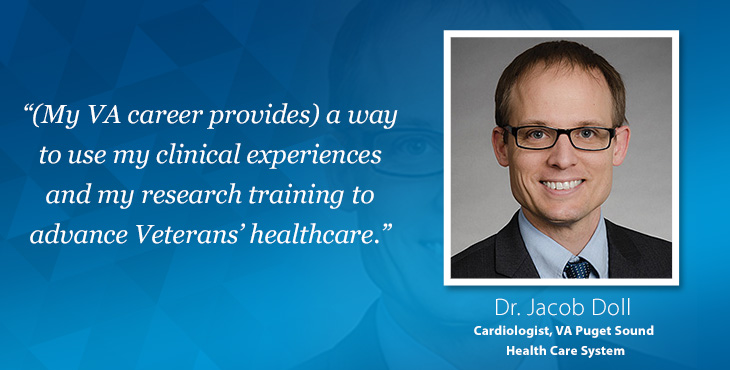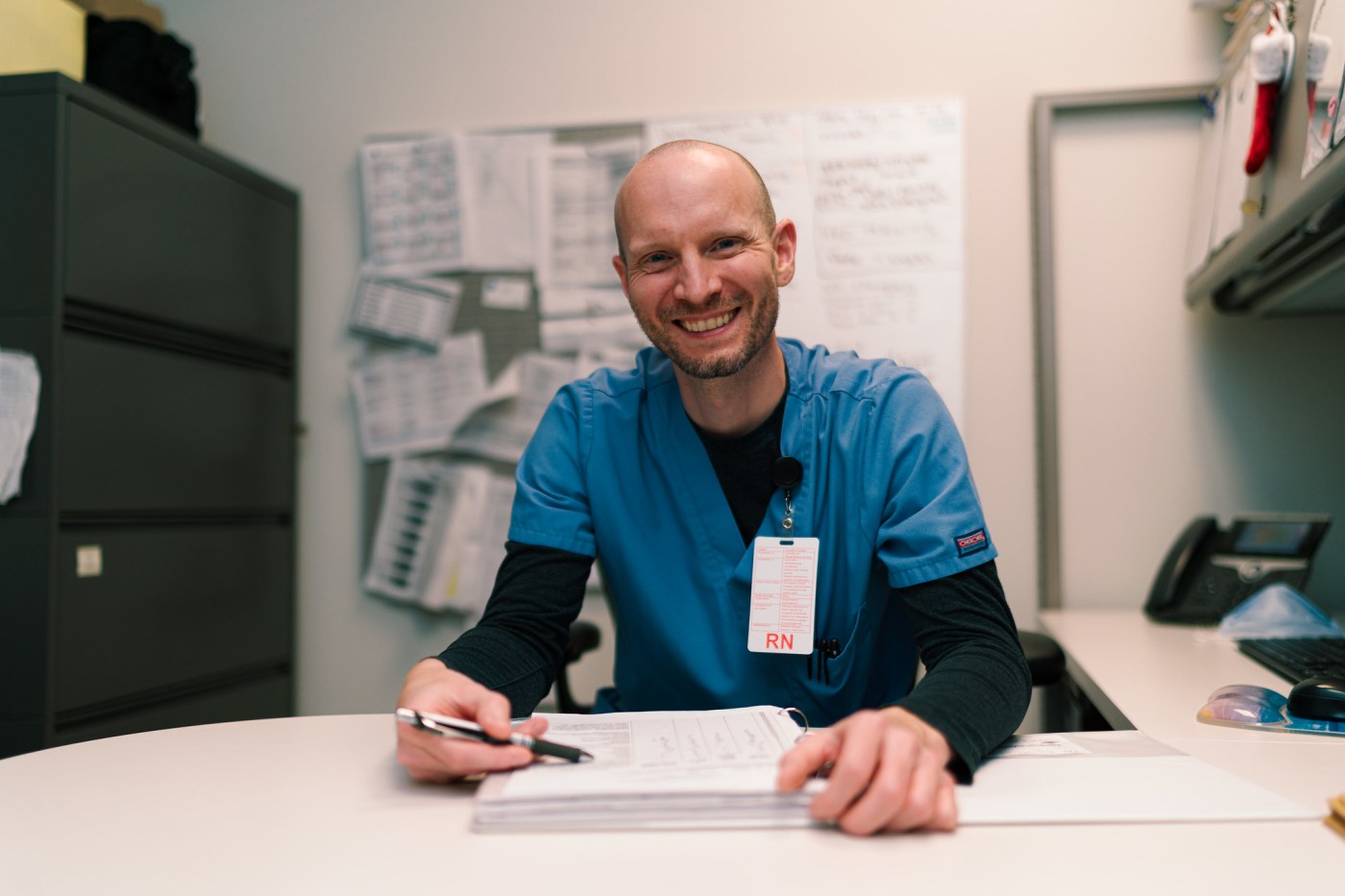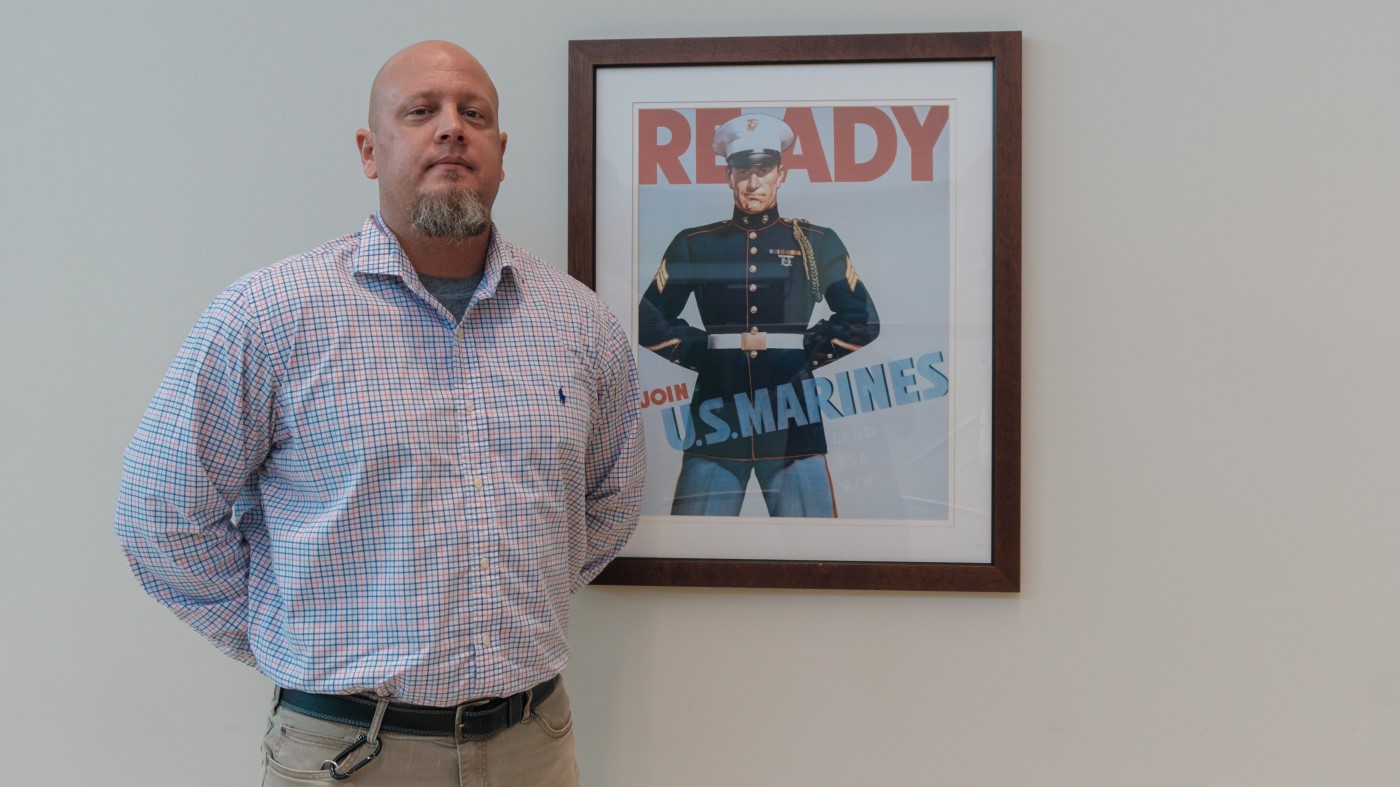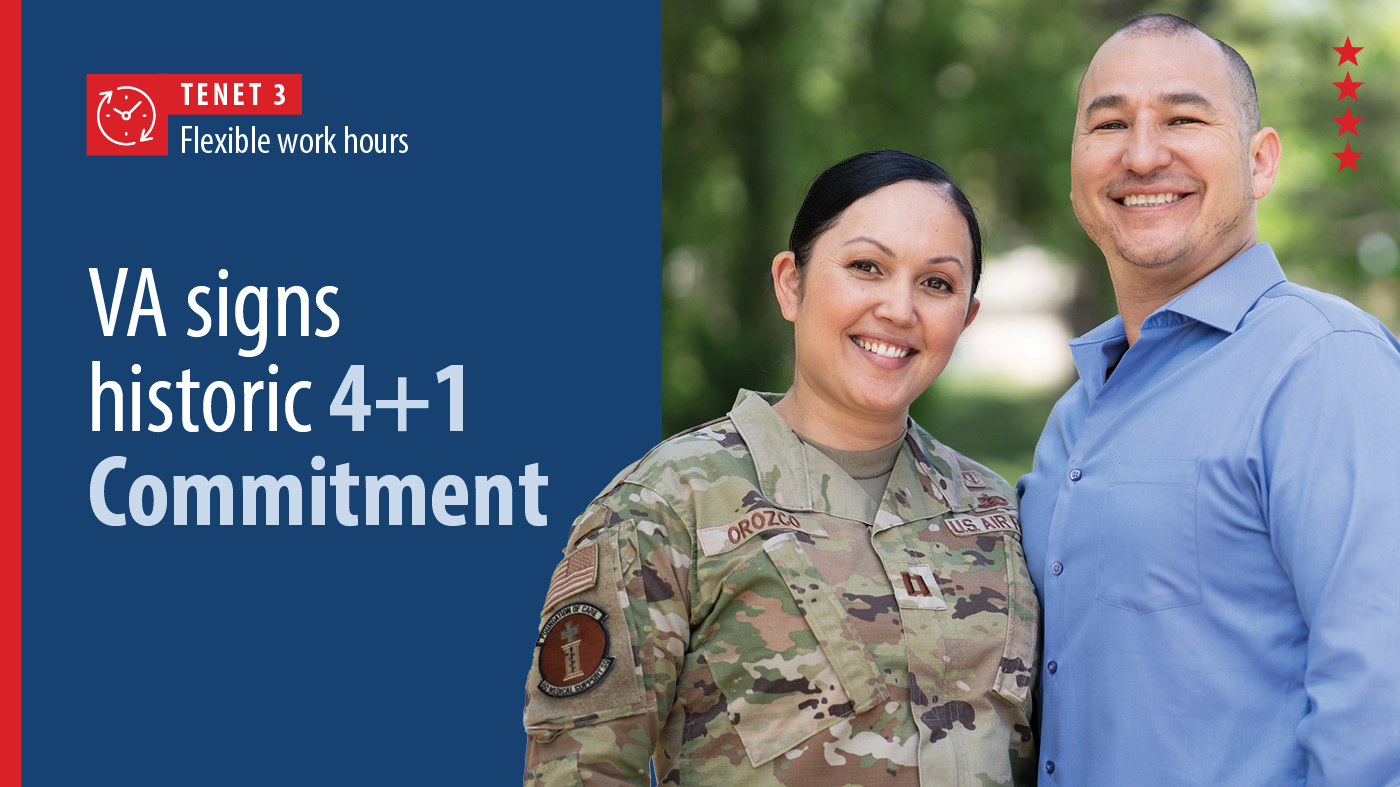Dr. Jacob Doll is a board-certified cardiologist and health services researcher at the U.S. Department of Veterans Affairs (VA) Puget Sound Health Care System. Dr. Doll trained at the Veterans Health Administration, where he began his career more than two years ago.
Dr. Doll said he chose a VA career because it offered dedicated clinical and research time, including funding opportunities and access to rich health systems data. He’s also receiving leadership and administrative experience as Assistant Director of the Clinical Assessment, Reporting and Tracking Program (CART) for cardiovascular procedures. He shares a belief in VA’s mission with his coworkers, and he appreciates a career that provides the flexibility and time off he needs to be with his growing family.
In this installment of our #ChooseVA Careers blog series and in recognition of American Hearth Month, Dr. Doll explains why he was attracted to a VA career in cardiology and why he thinks other early career physicians should consider working at VA.
What is your primary job at VA?
I am an interventional cardiologist who performs heart catheterizations and stenting procedures every Monday and Tuesday at the VA Puget Sound Health Care System. I also serve as a health services researcher with the Seattle-Denver Center of Innovation (COIN) and as Assistant Director, Clinical Assessment, Reporting and Tracking (CART) program, a clinical quality improvement registry program for cardiac procedures.
Describe your areas of specialty and how you apply these skills on behalf of Veterans.
I care primarily for patients with coronary artery disease, which is highly prevalent in the Veteran population. I perform cardiac procedures to open blocked arteries including for patients having heart attacks and disabling angina (chest pain).
My research is focused on helping clinicians assess their performance and improve their skills, particularly through peer-to-peer learning interventions. Because VA is an integrated system, we have great access to data and opportunities to provide meaningful feedback to clinicians. We can, and should, do a better job of supporting and promoting our clinicians to maximize their clinical skills and opportunities. This will directly lead to improved patient care.
What was appealing about a career at VA?
Working with the Veteran population has been important to me since my first year of cardiology fellowship training, when I had clinic and performed procedures at the Durham VA Health Care System. I like having the opportunity to give back to a group that has given so much to our country. VA is also very supportive of researchers. I’ve joined a diverse and talented group of investigators studying the delivery of healthcare in VA and outside VA. That also provides a sense of mission, and a way to use my clinical experiences and my research training to advance Veterans’ healthcare.
What is the most rewarding part of your job?
If a Veteran presents with a heart attack, and we take him or her immediately to the catheterization laboratory and discover a blocked artery, we can blow up a balloon in the artery and restore blood flow to that part of the heart. Seeing the return of circulation, and making the patient immediately feel better by relieving that crushing chest pain, is a very satisfying experience.
How has VA helped you grow in your career?
My current job at VA Puget Sound is my first position out of cardiology training. I was offered protected time and other support to get my research off the ground. I’ve used that support to obtain grant funding for my work for several years, and I’m very grateful to VA Puget Sound for taking a chance on a young researcher. My clinical coworkers and co-investigators challenge me every day to be better and come up with innovative ideas.
What are a few key benefits of working at VA?
For me, support for research has been number one. The flexibility provided by generous leave and paid time off policies has recently been very helpful, since I have a newborn girl at home.
What do you find most surprising about working at VA?
The sense of mission really does permeate all aspects of the job. No one forgets that our patients are Veterans, and that makes a difference in care. It’s very clear that my VA hospital wants us to do what’s right for the Veteran.
What would you tell other healthcare professionals who are interested in choosing a career at VA?
Consider it! Talk to someone at the VA facility you are interested in joining. No VA is perfect, but no non-VA hospital is perfect either. Try to get past the headlines and preconceptions about VA and think about what your day-to-day job could be.
Choose VA today
Dr. Doll is among the many VA physicians able to conduct research as they care for the nation’s Veterans. See if a career as a VA physician is right for you too.
- LEARN more about Dr. Doll’s research.
- APPLY for an open cardiology position near you.
- EXPLORE a VA physician career.
- LEARN how to Choose VA at www.VAcareers.va.gov.
Topics in this story
More Stories
There’s a time and a place (and a way) to reach out to recruiters during the application process. Find out the best way to reach out with our helpful tips.
Even as we serve Veterans, we want Veterans like you to join our team, because you understand the value of serving those who served.
VA is implementing the historic 4+1 Commitment to attract, hire, and retain military spouses. Learn more about this commitment and a key tenet, VA’s commitment to flexible work hours for military spouses.






